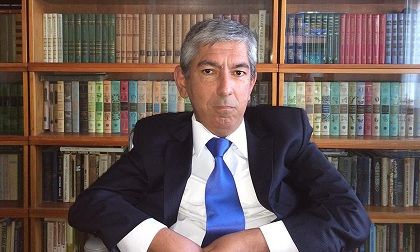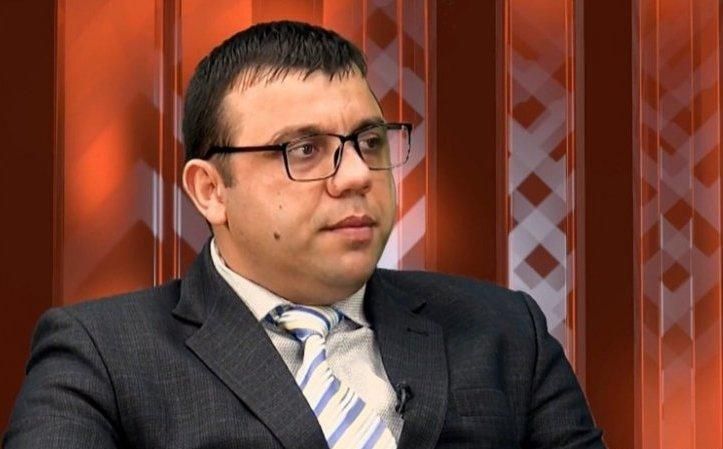During the 30 years of occupation of Azerbaijani lands, Armenian forces destroyed towns, villages, and all infrastructure attached to them. People of all ages were brutally killed without a drop of remorse. Over one million people were left without homes, lost relatives, friends, and families, and more than 4000 thousand went missing. Finally 30 years later, after the return of the occupied lands from the Armenians, Azerbaijan started another mission to find the truth of Armenian crimes that are hidden under the ground.
To date, the Armenians, clenching their teeth and biting sticks, do not want to give the coordinates of mass graves of civilians and soldiers killed by them during the first Garabagh war like they did with mine maps. The occupied territories were all sown with anti-infantry and anti-tank mines, which today makes it difficult to search for mass graves and remains of people killed by Armenian forces.
During the first Garabagh war, a total of 3,890 citizens went missing as a result of the Armenian occupation of the territories of Azerbaijan. There is irrefutable evidence that totally 872 missing persons were captured or remained in the previously occupied territories.
The above facts prove that Armenians committed a crime against Azerbaijan by ill-treating prisoners during the war and in non-war times. It should be noted that Armenia also tried to mislead the Azerbaijani side by providing mine maps.
According to expert Parviz Heydarov, who commented to AZERNEWS, during the period when the Armenian side occupied the territories of Azerbaijan and in the period after 30 years, a series of crimes against humanity were revealed one after another, and it will take many years to uncover more Armenian cruelty and merciless crimes.

"Now we know that the appropriate conditions for the conclusion of a peace agreement are indicated, especially since the Azerbaijani side in this matter suggests that Armenia puts the issue on the negotiating table once and for all. It seems inevitable, but even after the conclusion of the peace agreement, I am not sure that the Armenian side, whether in the matter of the exact provision of maps and afterward, will provide Azerbaijan with information about the atrocities committed by them, in mass graves, graves as well as maps with minefields. I'm not sure about that." Heydarov said.
10,815 biological samples were taken from 3,407 family members of the 3,890 people who went missing in the First Garabagh War. At least 98 corpses were found in Aghdam, Shusha, Goygol, Tartar, Fuzuli, Zangilan, Jabrail, Kalbajar, Lachin and Khojavand districts during large-scale construction works covering all districts of the liberated territory. Complex investigations are being carried out on the remains.
According to political analyst Samir Humbatov, during and after the first Garabagh war, some 3,890 Azerbaijani soldiers went missing and there is no thorough information about them. "Some of them have been found, but the remains of some others have been destroyed and there is no precise information about others," Humbatov said.

Touching on the issue of finding graves, the political analyst said that Armenia avoids giving any points about the locations of the mass graves.
"Armenia has committed grave offenses against Azerbaijanis and we can say that there are very few countries in the world that react to the fact that such large-scale decisions are made to search for the missing persons. And Armenia has given us locations that are not true in reality, they are trying to manipulate it. But the fact remains that Armenia refuses to give Azerbaijan accurate data so that mines planted there are not found, and Azerbaijanis falling in the mines died in those areas for almost three years since the search for missing persons was carried out. This shows that Armenia is violating the principles of international law." the analyst added.
In conclusion, the expert added that it is pointless to expect any help from foreign organizations, as well as from representatives of foreign countries in the consideration of crimes committed by the Armenian side against Azerbaijan, as they consider these crimes as income.
According to the latest data, at least 107 remains were found in Dashalti village of Shusha district, 12 in Farrukh village of Khojaly district, 27 in Edilli village of Khojavand district, 9 in Yukhari Seyid Ahmedli village of Fuzuli district and 31 in Shusha city prison, at least 98 corpses have been found in Aghdam, Shusha, Goygol, Tartar, Fuzuli, Zangilan, Jabrail, Kalbajar, Lachin and Khojavand districts in the course of large-scale construction works covering all districts of the liberated territory. Complex investigations are being conducted on the remains.
During the recent excavations of mass graves, among them was the National Hero of Azerbaijan Riad Ahmadov, at First Garabagh war, he was wounded in a battle with the intelligence group he led in the village of Dashalti and went missing on 26 January 1992.